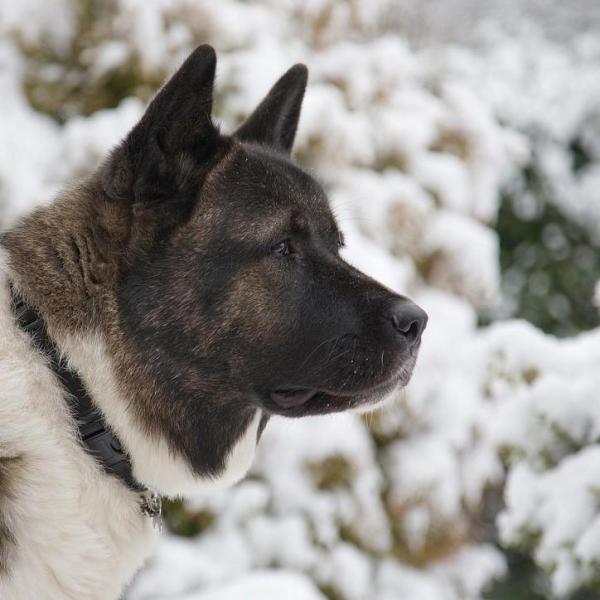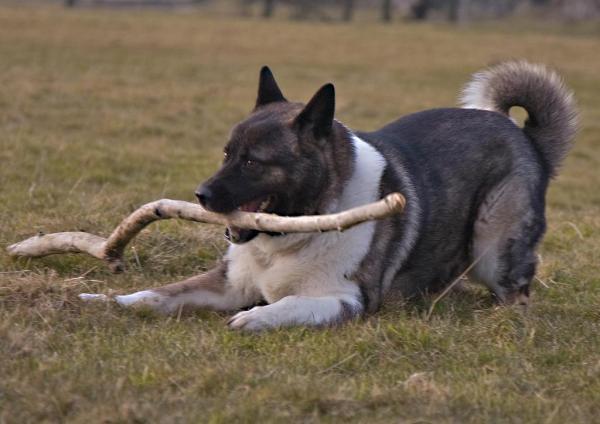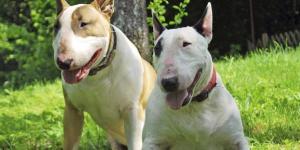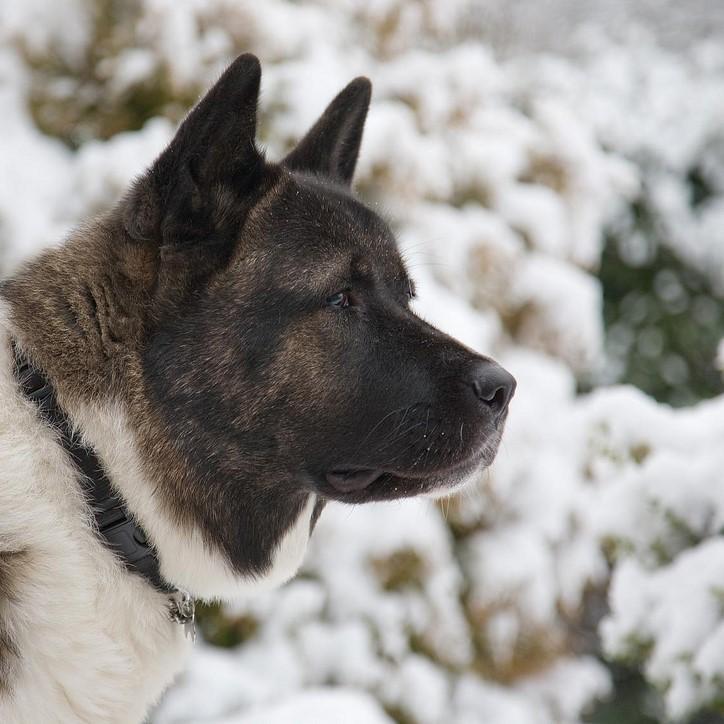Caring for an American Akita



Animal file: American Akita
The American Akita descends from the Matagi Akita, a breed from 17th Century Japan. These dogs were used for bear hunting at first, and later as fighting dogs. Over the decades they were crossbred with Tosa Inu and Mastiffs, originating different Akita breeds which were classified according to their use.
American Akitas are the result of a cross between Akita Inus and German Shepherds that took place in the United States. If you're passionate about this breed, or you're looking into adopting an American Akita, stay with us at AnimalWised. We'll tell you all about caring for an American Akita.
Socializing an American Akita
All puppies must be socialized in order to have stable, balanced behaviors in their adult life; however, this is especially important when we talk about the American Akita. Why? To put it simply, they are strong, robust, territorial and headstrong dogs.
Here is what you must bear in mind when socializing an American Akita puppy.
- Your American Akita puppy should have a durable toy suitable for dogs, since it will love to nibble on it and it must be able to channel all its energy through the appropriate accessories. Here you can learn more about bite inhibition in dogs.
- From a young age, your American Akita should have contact with the whole family, including any children in your home.
- The sooner your American Akita gets used to the presence of other dogs and animals, the better. They are very territorial animals, especially in the case of male dogs, so they must learn to share a space with others from an early stage. Neutering is highly recommended.

Exercise, discipline and affection
American Akitas need a confident, level-headed owner able to establish their own authority, with a strong, determined personality and the ability and time to train their dog in a stable, safe environment through positive reinforcement. If you adopt an American Akita you will need to have daily training sessions.
Controlled physical exercise will be key for the American Akita to manage its stress levels and balance its temperament. Moreover, exercise is also a good way to teach and establish discipline and routine, which will greatly benefit your dog.
Finally, you must know that both Akita Inus and American Akitas are characterized by total devotion and loyalty to their human families. You must train them, but also give them enough affection, attention, play time and company if you want your dog to stay healthy and happy.
Caring for an American Akita's coat
American Akitas have a double coat that protects them from the cold; regular brushing is very important to keep their coat healthy and shiny and to avoid having to bathe them too often. When you do bathe your dog, remember that you must use specific shampoo for dogs to avoid damaging their skin and prevent allergic reactions.
Weekly brushingis enough, but it must be daily in spring and autumn because during these seasons the American Akita molts its coat. During the molting period, daily brushing will be a good way to monitor the process, as some dogs are prone to eczema during this time.

Other tips to care for an American Akita
The American Akita has a life expectancy of 10 years, but with proper care it can live for 12 years. Here's what you can do to monitor all aspects of your dog's health:
- Prevent tartar build-up on the teeth and gums by practicing regular oral hygiene with toothpaste and a dog-specific toothbrush. Accustom your dog to this routine from an early age.
- American Akitas should be given specific feed for large dogs, as it will help them prevent joint diseases and maintain their cartilage. Suitable feed will also help keep their coat in top condition. Here you will learn more about how much food should an American Akita eat.
- Oversee all aspects of general care: follow the vaccination and deworming schedules, go to the vet for regular check-ups and learn about the common diseases of American Akitas.
If you want to read similar articles to Caring for an American Akita, we recommend you visit our Basic care category.







